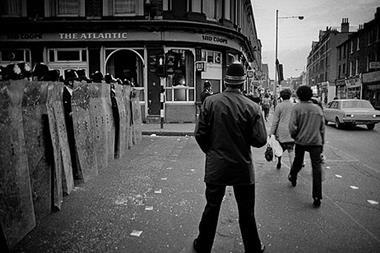With phone hacking investigations now extending across the pond to September 11 victims, News Corporation has more and more to answer for. But bosses’attempts to plead ignorance won’t wash – corporate culture is led from the top.
As the Murdoch’s defend their position in relation to News Corporation subsidiary News International’s telephone hacking scandal in the UK, the greatest threats now appear likely to come from the other side of the Atlantic. The company is already subject to one US D&O law suit, but more are now on the horizon, along with possible action under the US Foreign Corrupt Practices Act (FCPA). The damage to reputation goes without saying.
In the UK, much hinges on who knew what and when at the company’s News of the World, with regards to hacking into voicemails to obtain stories on various people in the public eye. It is hard to believe the senior editorial team were unaware at the time of how stories were being sourced. Despite the adage that journalists don’t disclose their sources, this rarely applies to their editor – or in-house legal advisers. These revelations point to questions of governance and corporate culture. A number of individuals involved in a criminal act within an organisation, going undetected and/or unpunished, is a sign that the organisation condones such behaviour. Corporate culture works from the top down.
Shareholders’ displeasure
The scandal has resulted in the closure of the newspaper and has effectively scuppered– in the short term at least – News Corp’s plans to take over BSkyB. Investors are therefore very unhappy, yet the way the company is structured makes it diffi cult for them to gain a majority. News Corp has two types of shares. Class A shares do not carry a vote. Class B shares do, with one exception –the chairman of Saudi company Kingdom Holding, who owns 7%. The voting shares are otherwise split fairly diversely between investors, leaving the Murdochs holding around 38%.
And yet, before the current scandal, some discontented shareholders had already instituted a D&O claim, in respect of News Corp’s decision to buy UK television production company Shine – majority-owned by Rupert Murdoch’s daughter Elisabeth – for $675m (€475m). They believed this to be a clear case of overpayment due to nepotism. But, though the D&O suits are a concern, the company is reportedly well insured. A more alarming development for News Corp is a possible action under the FCPA.
The USA gets involved
According to The New York Times, the FBI is also looking into a claim that a former New York City police officer was offered money for information about 9/11 victims. The newspaper said: “If phone records were accessed, that could be a violation of the Telephone Records and Privacy Protection Act, 18 USC 1039, which prohibits making false or fraudulent statements to obtain another person’s telephone records.”
News Corp relocated from Australia to the USA in 2004, and therefore is subject to US laws. But, as the statute did not come into effect until the end of 2006, much depends on when transgressions took place. It is more likely that the USA will try to invoke the FCPA over the police payment claim. Proved payments to UK police officers for information may not apply, as they cannot be classed as a bribe for the direct purpose of gaining business. But the USA tends to be fairly zealous in pursuing suspect off shore-based shenanigans. Of course, any falsification of accounting records to conceal payments would be actionable and dealt with by the Securities and Exchange Commission. With so many potential D&O actions and lawsuits facing News Corp, its reputation is in tatters. Rupert Murdoch, once courted by governments, is now persona non grata. It’s fair to assume that any future corporate structure that gives so much power to one family – with restricted voting rights to many shareholders – is likely to come under somewhat greater scrutiny.



















